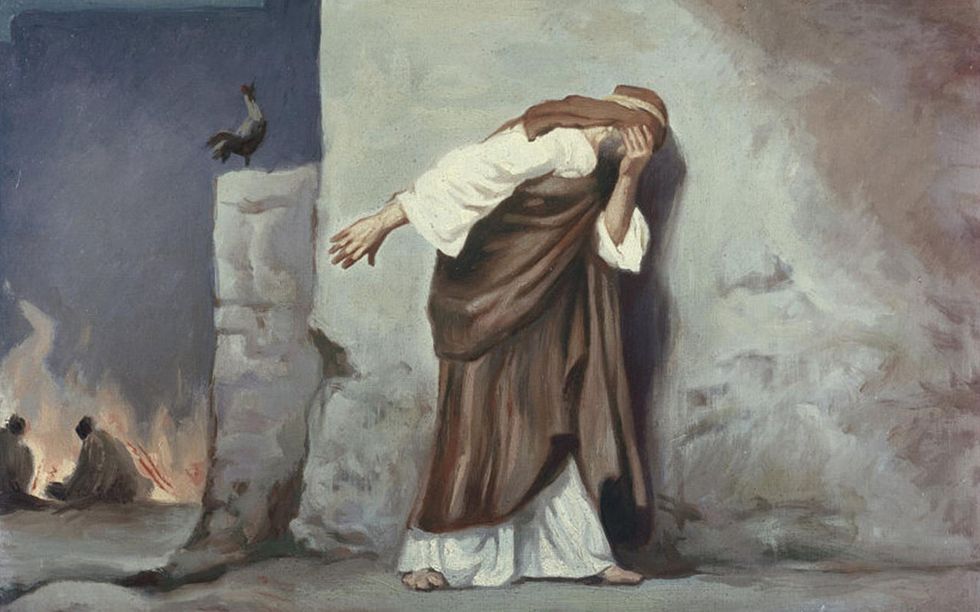The more time I spent listening and talking to people from different walks of life while at college, the more I became convinced that disappointment and shame play major roles in our relationships both with others and with ourselves. Disappointment and shame are inherently linked, often both feeding into each other in a cycle that directly contributes to thought and behavior patterns that are difficult to escape. These thoughts and patterns have all kinds of bases which are often linked to some kind of emotional and/or physical trauma. Victims of sexual assault often feel shame because of what has happened to them, believing that there will be accusations from others, themselves, or the larger society as a whole if they were to be honest about their experience. Addicts similarly feel the social denunciation of those who brand them as “lazy” or “pleasure hungry” for being unable to break the cycle of guilt and negative consequences. People suffering from depression and other forms of mental illness also feel shame, thinking that taking medication in order to feel normal or going to psychotherapy make them “crazy” in the eyes of their peers or society. Those who have struggled with suicidal thoughts feel shame, believing that they will receive nothing but accusation and anger upon revealing their thoughts to others.
When talking about these societal issues with a friend of mine (specifically in the context of suicide and mental health), he remarked that victims of such things have no one but themselves to blame for not reaching out because, in his experience and cultural observations, society does not accuse people for struggling with such things. Perhaps what he is saying has some merit, but I think he also discounts how debilitating shame can be, even if the shame is purely from one’s own mind rather than from society. The thing about shame is that it causes me to condemn myself precisely because I feel my actions and emotions are unavoidable or uncontrollable. The depressed person feels as if the emotions of prolonged sadness are both unexplained and somehow their fault and thus thinks, “What in the world is wrong with me?” leading to further depression and guilt. The addict feels similarly, condemning themselves for their own actions which they believe to be in control of but have long since been hijacked by a behavior or substance foreign to their nature. The victim of assault also feels the same.
The question remaining is how to break free of this cycle of self-condemnation, shame, and guilt in order to finally be loosed of the hell of who I am afraid I will become. At times, breaking free may appear impossible. Such things are always processes, and there are no quick and easy solutions.
I believe part of the solution comes in accepting our weaknesses and illnesses as they are without making pretenses or excuses for them. We must relinquish our pride and accept that we are not as strong as we think we are. This is difficult to be sure, for doing so involves accepting the very shame which we are seemingly trying to run from. But, as challenging as this can be, it is needed in order for me to come to terms with who I really am. The addict must accept that the power of choice no longer lies within his grasp and humbly search for help. The depressed man must accept that medication and therapy may be part of his road to recovery and the grace granted to him by God. The victim must similarly see how their trauma has affected their perception of reality and seek help accordingly. In doing this, we manage to, in the words of Elder Sophrony, “bear a little shame.” By doing so, we learn to escape shame by shame itself. When writing about our entreaty in the prayer of St. Ephrem the Syrian to see our own faults and not judge our brothers and sisters, the French Orthodox theologian Oliver Clement noted the following:
One who sees his own sin and does not judge his brother becomes capable of truly loving him. I have been disappointed in myself often enough that I can no longer be disappointed by anyone. I know that man, made in the image of God, is both Secret and Love, but that love can turn to hate. I respect the Secret, I await nothing in return. If love should come of it, it is pure grace.
It is precisely in and through this acceptance of our self-disappointment that we become free from the judgement of the world, others, and ourselves. I know that I am weak. I am in no place to judge anyone, including myself. And thus, when I fall, I must humbly accept my failings and get back up by God’s grace. The Holy Spirit is with us, Who is the “comforter, Spirit of Truth, present in all places and filling all things.”
This is difficult work that takes the deliberate training of our thoughts to accomplish. May God grant us this by His grace.
*If you need help for any of the problems described in this article, please seek professional help. This article simply reflects my ponderings on difficult topics and is not meant to provide in depth solutions to anyone’s problems.



















